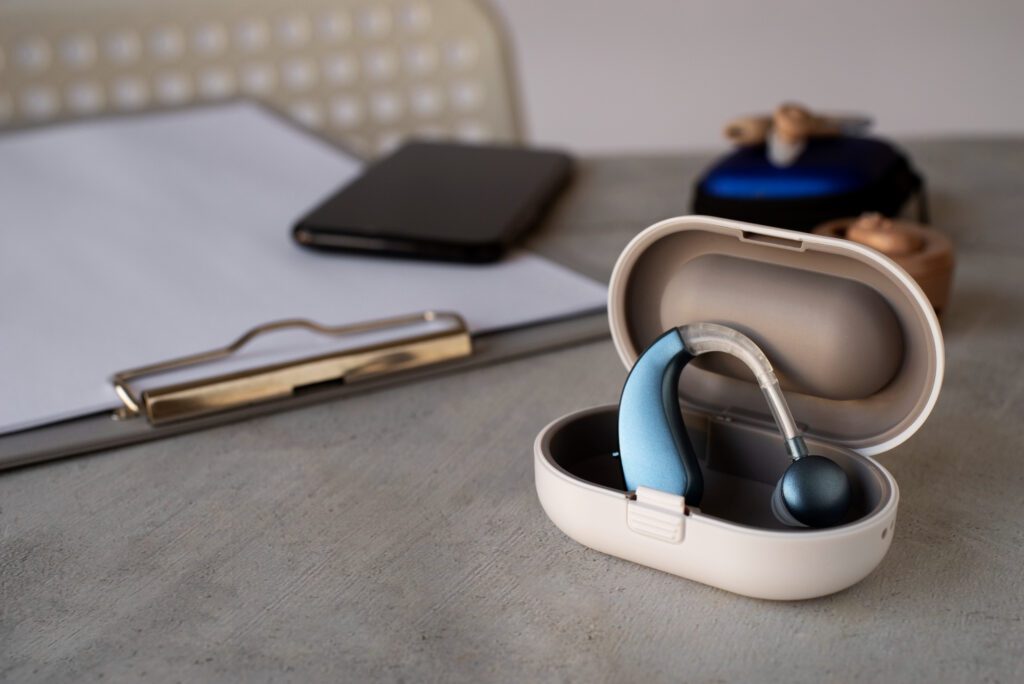9 Easy Tips For Care and Maintenance of Hearing Aid
Hearing aids are sophisticated devices that require proper care and maintenance to function optimally. Without proper care, they can become damaged, malfunction or even stop working entirely. In this article, we will discuss the essential steps to take to ensure your hearing aid is well-maintained and provides you with clear sound for years to come.
1. Clean your hearing aid daily
The first step in caring for your hearing aid is to clean it daily. Use a soft, dry cloth or a hearing aid cleaning brush to remove any earwax or debris that may have accumulated on the device. Avoid using water, alcohol or other solvents as they can damage the electronic components of the hearing aid.
2. Store your hearing aid properly
When you are not wearing your hearing aid, it is important to store it properly. Use a dry, cool and safe place to keep your hearing aid. Store your hearing aid in a hard, protective case that can protect it from accidental damage or falls.
3. Keep your hearing aid away from moisture
Moisture can damage your hearing aid, so it is essential to keep it dry at all times. Avoid wearing your hearing aid when showering, swimming or in humid environments. Consider purchasing a hearing aid dehumidifier to help remove any moisture that may have accumulated on your device.
4. Change the batteries regularly
Regular battery changes are critical to ensuring your hearing aid works correctly. Make sure you have extra batteries on hand, and check them regularly for corrosion or damage. A good rule of thumb is to change your batteries every week or when you notice your hearing aid is losing power.
5. Get your hearing aid serviced regularly
Regular servicing and maintenance of your hearing aid are essential to keep it in good working condition. Make sure you have your hearing aid serviced by a professional every six months or as recommended by the manufacturer. A professional can clean your hearing aid, check for any damage or malfunction and adjust the settings to ensure optimal performance.
6. Protect your hearing aid from extreme temperatures
Extreme temperatures can damage your hearing aid, so it is essential to keep it away from heat sources like direct sunlight, radiators or heaters. Also, avoid leaving your hearing aid in your car or other hot environments.
7. Handle your hearing aid with care
Hearing aids are delicate devices that require gentle handling. Avoid dropping or banging your hearing aid, as it can cause damage to the electronic components inside. When handling your hearing aid, do so with clean, dry hands and avoid touching the microphone or other parts of the device.
8. Keep your ears clean
Proper ear hygiene is essential to maintaining your hearing aid’s effectiveness. Keep your ears clean and dry to prevent earwax or other debris from accumulating inside your ear canal, which can cause damage or affect the performance of your hearing aid.
9. Know when to replace your hearing aid
Even with proper care and maintenance, hearing aids have a lifespan. Know when it is time to replace your hearing aid by watching for signs of wear and tear or a decline in performance. A professional can help you determine when it is time to replace your hearing aid.
Conclusion
Taking care of your hearing aid is critical to ensuring it provides you with clear and effective sound for years to come. Follow these essential tips to maintain your hearing aid and ensure it functions optimally. If you have any questions or concerns about your hearing aid’s maintenance, speak to your hearing care professional.
FAQs
- How often should I clean my hearing aid? Ans: You should clean your hearing aid every day to prevent earwax and debris buildup.
- Can I use water to clean my hearing aid? Ans: No, water can damage the electronic components of your hearing aid. Use a soft, dry cloth or a hearing aid cleaning brush instead.
- How often should I change my hearing aid batteries? Ans: You should change your hearing aid batteries every week or when you notice your hearing aid is losing power.
- Can extreme temperatures damage my hearing aid? Ans: Yes, extreme temperatures can damage your hearing aid. Keep it away from heat sources and direct sunlight.
- When should I replace my hearing aid? Ans: You should replace your hearing aid when you notice signs of wear and tear or a decline in performance. Consult with a professional to determine when it is time to replace your hearing aid.

